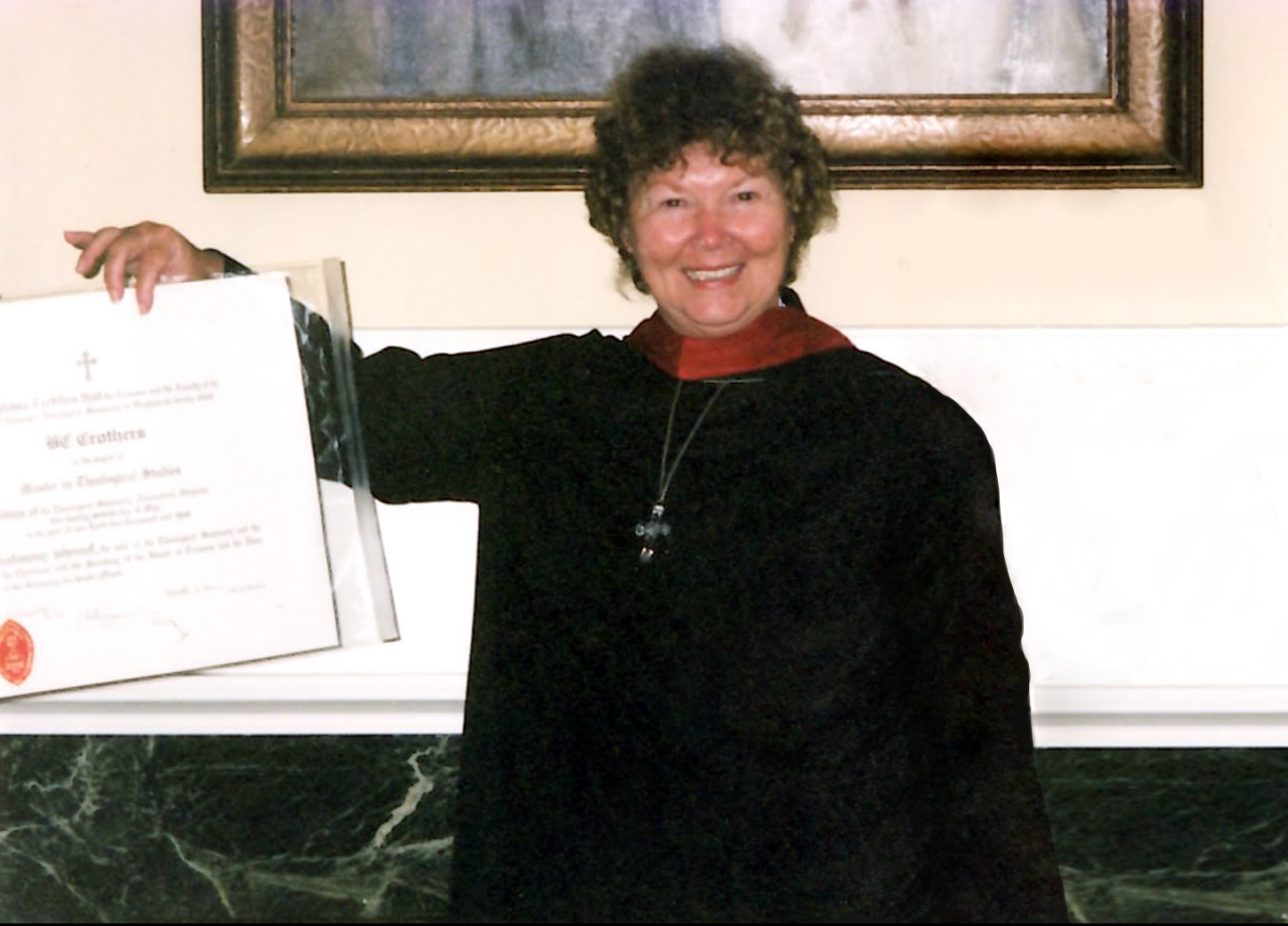
Masters
In Theology
BC CROTHERS–Behind Her Authorship
REASONS BEHIND THE ‘WHY’ OF SPENDING FIVE YEARS IN RESEARCH
When 21 years old, I read for the first time the New Testament while on a private retreat in Germany. The Gospels were my first reading of the Jesus-ministry, and I both loved the story and felt confused by it, for there were questions. I thrive on facts, people and place names, dates, and answers to the ‘why’. However, the Gospels pay little attention to external trivia. They concentrate instead on the principal topic: Jesus’s teachings and how they can change our lives.
The readings certainly changed my thoughts about Faith and the purpose of life, but the ‘why’ on several issues remain with me still. God, Creator of the Cosmos, is a compassionate, forgiving, loving Father of All Souls. So likewise, Jesus our Lord is a compassionate, forgiving, loving companion who saves us from our sins through His teachings. One “please forgive me,” and God not only forgives us—we receive a clean slate! One “forgive me, Lord,” and Jesus says, “Go, and sin no more” and “forgive others as you seek forgiveness for yourself.”
I believe these statements to be factual. Yet, one of the first unanswered ‘why’ questions belonged to Iscariot’s why. Why is there no statement of Judas’s sorrow over his betrayal? No mention of his seeking forgiveness at the end of his life? Are we to understand that he never begged for forgiveness from the God to whom he prayed every day as he adhered to the strict way of daily Jewish worship? Do we really think Judas never cried out in prayer to Jesus, his friend, who had shown him another way to live? Are we to believe there was no redemption for Judas Iscariot from the Cornerstones of our Faith, who gave us the purest example of turning divine love into human love?
Seeking these answers led me into the study of Palestine in the 20s-30s CE, the time of Jesus’ ministry. There arose new why’s. The one strong Faith in the world was the Jewish Religion, and it was badly fractionalized. Everyone was fighting against each other: Jerusalem Temple’s hierarchy against a disobedient people, four Sects impressing their philosophies unto those unwilling to listen or change, Rome’s rule over Palestine was a joke for neither group understood the other and from their mistakes grew grief-filled problems for all concerned. The ‘am ha-aretz, the common people, wanted to live their own life in peace, worshipping the God they knew through Moses. But they had to live under the Temple’s 613 daily rules that choked the spirit out of living and Faith. In this mix were roaming bandits, thieves, fake messiahs, assassins, and a lone man who walked among all of them, preaching His words of love, peace, forgiveness, and reconciliation. Why in the world would Jesus of Nazareth choose this place, this time, to come and save the world? Why?
Some of the above why’s found answers in the decades of research, writing, speaking, teaching. Now is the time to share these insightful lessons, for I believe that the more we know about our Jewish-Christian Faith’s past, the better we will see how our lack of growth into full humanity has been thwarted by not staying faithful to our shared beliefs. I make this statement because the human issues facing early first-century CE are still with us. Violent wars, suffering innocents, forgiveness as a gift to a few, the uniting of love, security and money, and the insincerity behind words and promises given. Upmanship, falsehoods, secrets—so many behavioral negatives keep humanity from moving forward into the reign of Heaven on Earth. Yet, our souls know this promise of Heaven on Earth is a real possibility. Yet, the why of the reasons we are still stuck with yesteryear’s self-perpetrating evil is a hope my books ask, and you, the reader, will answer.
